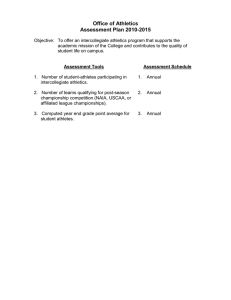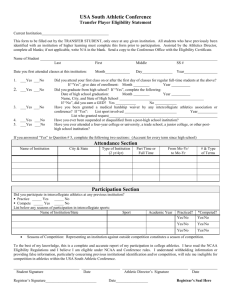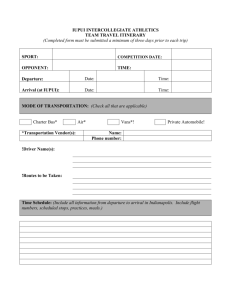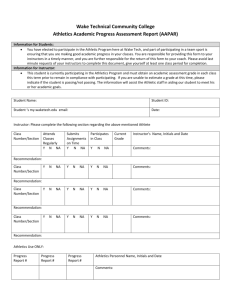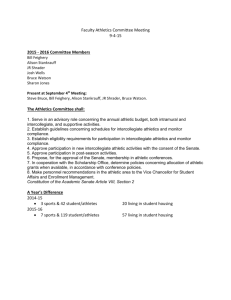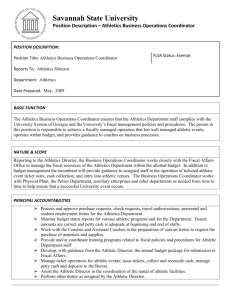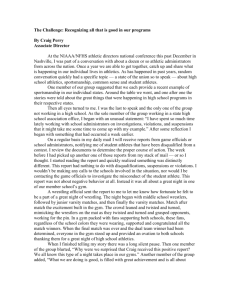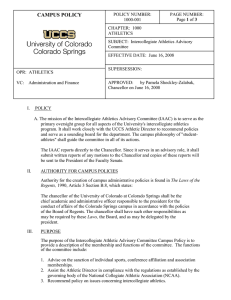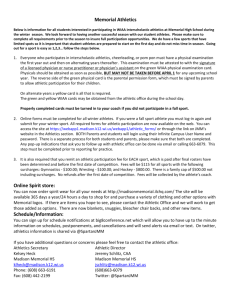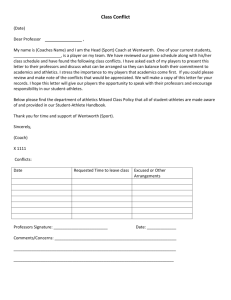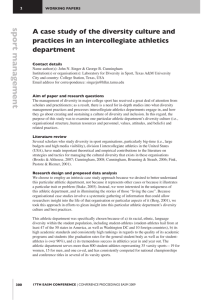Guidelines: Athletic Programs 1 Middle States Commission on
advertisement
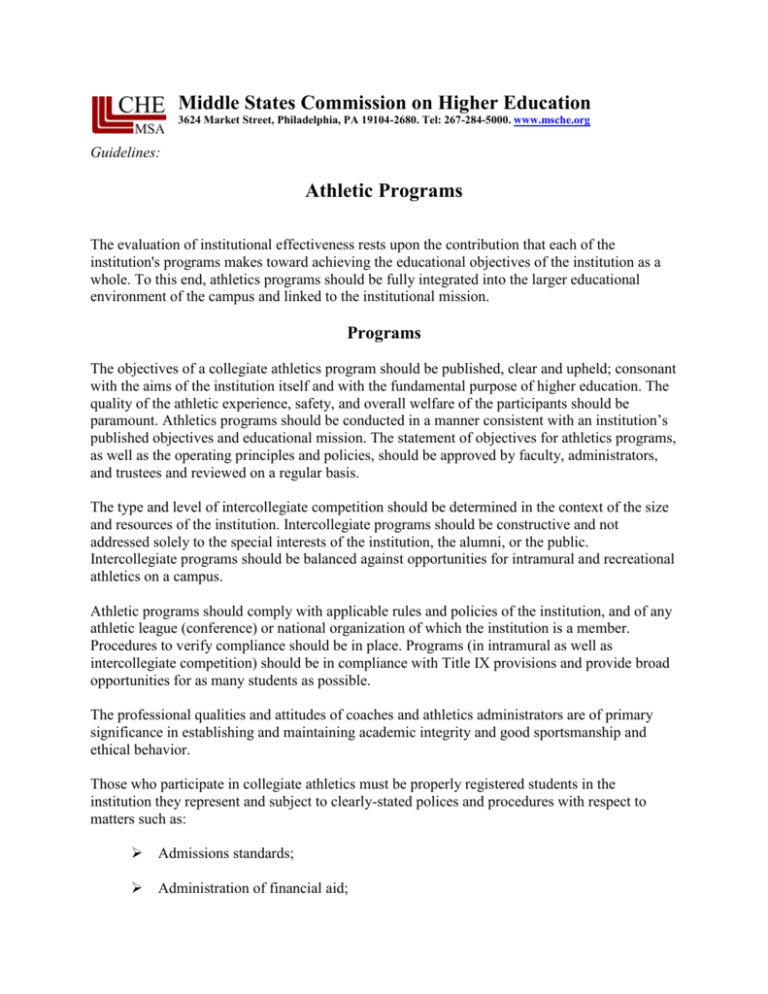
Middle States Commission on Higher Education 3624 Market Street, Philadelphia, PA 19104-2680. Tel: 267-284-5000. www.msche.org Guidelines: Athletic Programs The evaluation of institutional effectiveness rests upon the contribution that each of the institution's programs makes toward achieving the educational objectives of the institution as a whole. To this end, athletics programs should be fully integrated into the larger educational environment of the campus and linked to the institutional mission. Programs The objectives of a collegiate athletics program should be published, clear and upheld; consonant with the aims of the institution itself and with the fundamental purpose of higher education. The quality of the athletic experience, safety, and overall welfare of the participants should be paramount. Athletics programs should be conducted in a manner consistent with an institution’s published objectives and educational mission. The statement of objectives for athletics programs, as well as the operating principles and policies, should be approved by faculty, administrators, and trustees and reviewed on a regular basis. The type and level of intercollegiate competition should be determined in the context of the size and resources of the institution. Intercollegiate programs should be constructive and not addressed solely to the special interests of the institution, the alumni, or the public. Intercollegiate programs should be balanced against opportunities for intramural and recreational athletics on a campus. Athletic programs should comply with applicable rules and policies of the institution, and of any athletic league (conference) or national organization of which the institution is a member. Procedures to verify compliance should be in place. Programs (in intramural as well as intercollegiate competition) should be in compliance with Title IX provisions and provide broad opportunities for as many students as possible. The professional qualities and attitudes of coaches and athletics administrators are of primary significance in establishing and maintaining academic integrity and good sportsmanship and ethical behavior. Those who participate in collegiate athletics must be properly registered students in the institution they represent and subject to clearly-stated polices and procedures with respect to matters such as: Admissions standards; Administration of financial aid; Guidelines: Athletic Programs 2 Opportunities for scholarship funds for men and women; Credit-granting procedures; Progress toward and achievement of academic degrees; and Transfer procedures. In short, student-athletes should be treated as any other student on campus and perform to the same academic standard. Organization While organizational details such as the status of coaches and athletic directors will vary with local conditions, the ultimate responsibility for all programs rests with the chief executive officer of the institution and the governing board. This is particularly important in light of the Knight Commission reports. In the institutional governance structure, the committee overseeing athletic programs should involve representatives of appropriate constituencies, including faculty, students, key staff (e.g., from admissions, registrar and financial aid offices) and administrators. Some oversight of rules compliance and adherence to academic standards should be conducted by someone outside of the athletics department. Finance All expenditures for and income from athletics, from whatever source, and the administration of scholarships, grants, loans, and student employment, should be fully controlled by the institution and included in its regular budgeting, accounting, and auditing procedures. Version: 0904
